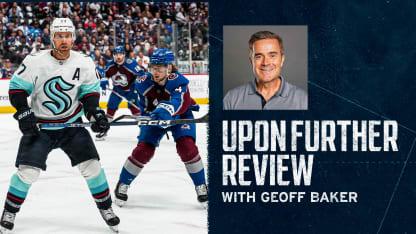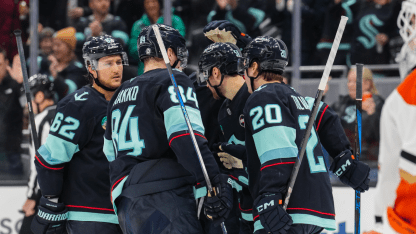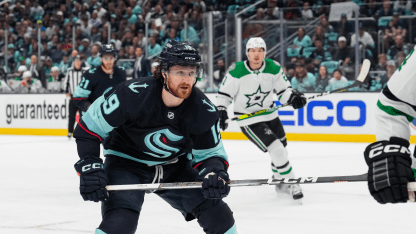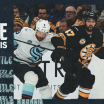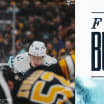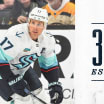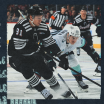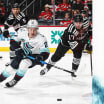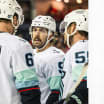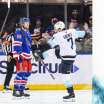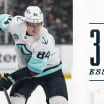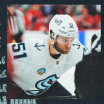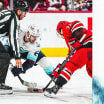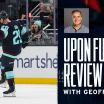What put me onto this was an online “exchange of ideas” – to put it politely – I witnessed this week between Washington Capitals and Montreal Canadiens fans after their first-round playoff series ended. At some point, a Caps fan suggested the Canadiens had been irrelevant “for 60 years,” to which a Montreal supporter countered his team had won seven times more Cups (it’s actually a dozen times more) than Washington that period. To which, a Caps supporter incorrectly countered that most were during the “Original Six” era that technically only ended 58 years ago, but I get his point.
Montreal has gone 32 years since winning the last championship by a Canadian-based team, so to argue modern supremacy by citing the record 24 Cup banners hanging at Bell Centre – a building that didn’t even exist when those banners were won – is getting as old as black and white photographs of the last Toronto Maple Leafs title. That said, it’s similarly tough for a Caps fan to argue a grand total of one championship in their franchise’s 50-year history is indicative of much.
And it got me thinking both groups, however inadvertently, had stumbled onto something.
And that is, defining success of modern NHL franchises by Cup victories is a fool’s errand guaranteed to leave fans in all 32 league cities miserable most of the time. I mean, I grew up in Montreal when the mayor once proclaimed that spring’s upcoming downtown Cup parade would follow “the usual route.”
But that just hasn’t been NHL reality for the longest time. The New York Islanders won four straight championships in the early 1980s and none since. The Edmonton Oilers upended the Islanders' dynasty with four Cups in five years with Wayne Gretzky and five titles in seven seasons overall, but zero since 1990.
Even three Cups in six seasons by the more modern-day Chicago Blackhawks in 2010, 2013 and 2015 now appears an anomaly.
Modern lists of the most “successful” – a.k.a. valuable – franchises typically start with come combo of the New York Rangers, Maple Leafs and Canadiens.
We’ve already mentioned Montreal’s Cup drought of 32 years. The Rangers? They have one championship in 85 years, the last coming 31 years ago. Don’t even get me started on the Leafs, famously at 58 years since their last Cup Final appearance.
Yet, those franchises are as successful as they get.
St. Louis has one championship in 57 years. Boston just one in the last 53 years. Philadelphia has gone 50 years without. Calgary is at a 36-year drought and counting, and Edmonton, as mentioned, is at 35. Dallas hasn’t won in 26 years with just one title in 57 years as a franchise if you include the prior Minnesota North Stars.
Vancouver and Buffalo have never won in 54 years. Winnipeg hasn’t won in either of its NHL incarnations stretching back 45 years. San Jose is at zero in 33 years, Ottawa 0-for-32. Nashville has none in 26 years and the Columbus Blue Jackets and Minnesota Wild have none in 24.
So, we just rattled off more than half the NHL combining for only six Cups since the Oilers last won one 35 years ago. So, no we can’t really use Cups to define true franchise success even if a championship remains the ultimate goal.
Make the playoffs, your team at least has a shot. Do the playoff thing many times, your team has many shots and your fans have a chance to be far happier sitting through an 82-game season and beyond.
Some of the more successful, perennial playoff franchises of late have been the Avalanche and Stars. When it comes to roster building, you won’t find pundits placing those teams anywhere but up with the NHL’s best.
Dallas has made four straight playoff appearances and six in seven seasons while Colorado is at eight straight. And yet, both have combined for just one Cup between them over that stretch and one will eliminate the other in Game 7 on Saturday.

